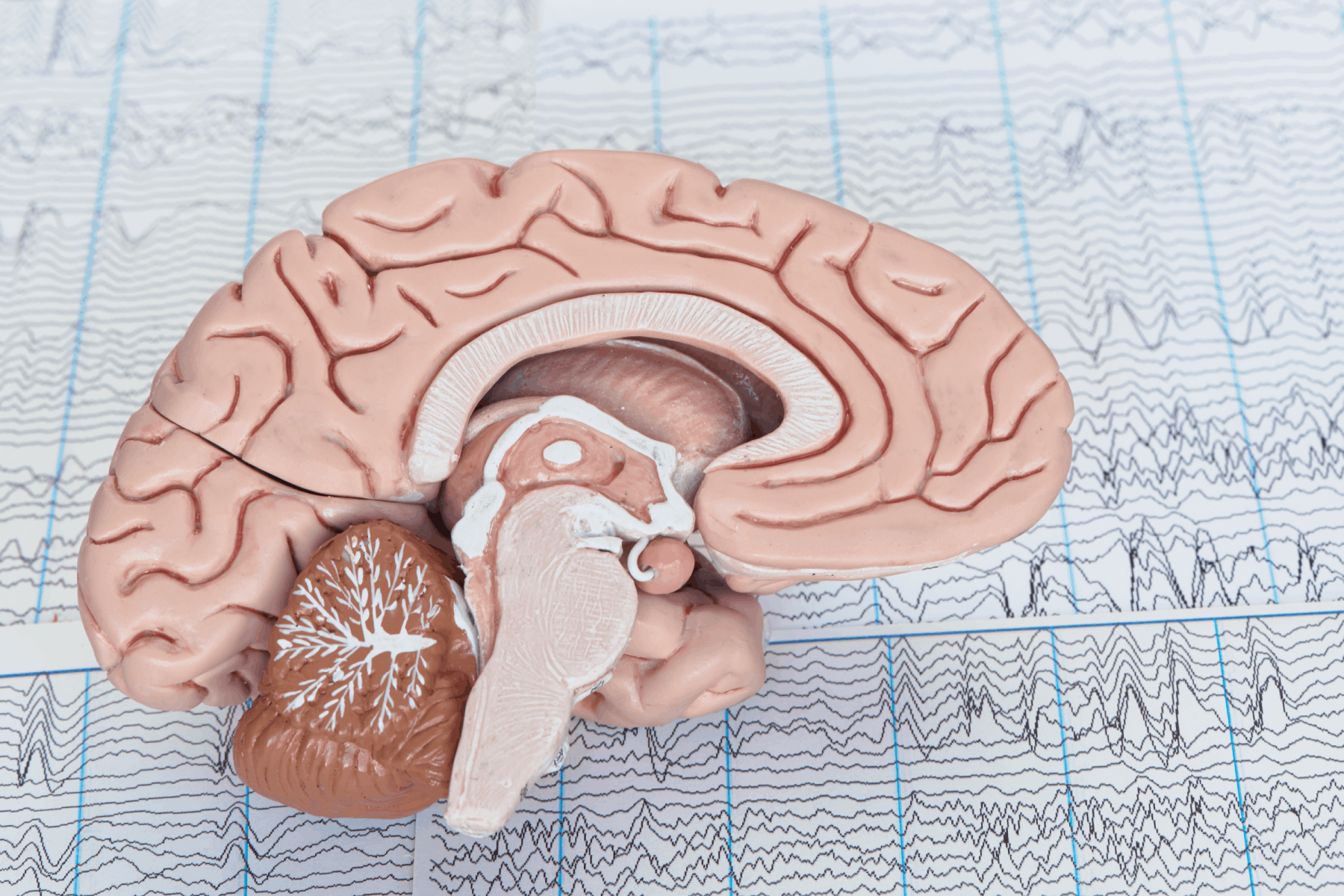What Is Epilepsy?
Disclaimer: Not medical or professional advice.
Epilepsy is a chronic brain disorder characterized by spontaneous recurrent seizures. Epileptic seizures alter the functioning of the motor and nervous systems. They can affect one part of the body or the entire body. Seizures are sometimes accompanied by loss of consciousness and control of bowel or bladder function. A mild seizure may look like a short disconnection from the outside world: the patient experiences eyelid fluttering, facial twitching, and a slight muscle spasm. A person having a seizure may seem confused or look like they are deep in thoughts. It can be hard to know if someone is having an epileptic seizure. Moreover, seizures can go unnoticed even by the patient.
Facts about Epilepsy

- 1 in 26 Americans will develop epilepsy at some point in their lifetime. According to the WHO, approximately every 4-10 people out of 1000 suffer from active epilepsy worldwide - this is one of the most common neurological diseases.
- Epilepsy has been recognized for millennia. The first known mention of epilepsy came to us from 500-700 BC. A detailed description of the disease, the types of seizures, provoking factors was found on stone slabs in Babylon. The ancient Greeks saw epilepsy as a supernatural divine phenomenon and called it a sacred disease. In 450 BC, Hippocrates first rejected the divine etiology of epilepsy, stating that the disease has natural causes and originates in the brain.
- People who have had a single unprovoked seizure should be informed they have a 60% chance of recurrent seizure.
- People can die from epilepsy (SUDEP - sudden unexpected death in epilepsy). The exact cause is still not known.
- About 70% of epilepsy cases are treatable.
- Epilepsy can develop in any person at any age - from newborns (the first month of life) to the elderly. Epileptic seizures mostly occur in children under 15 years of age (approximately half of all seizures occur at this age). Children aged 1 to 9 years are at high risk of developing seizures. The old-age stage is the second peak period for developing epilepsy.
What Causes Epilepsy?
The basis for seizure onset is the imbalance between the excitatory and inhibitory systems of the brain. Under normal conditions, these systems work simultaneously to create an optimal level of neuronal activity (neurons are a group of specialized cells that transmit information throughout the body.) Epilepsy is characterized by excessive excitatory activity and insufficient inhibitory activity. Therefore, when groups of nerve cells begin to produce hypersynchronous electrical discharges, they cannot be stopped. These discharges spread to other parts of the nervous system and the person experiences a seizure. In fact, the seizure is the body's method of unleashing excessive neuronal activity.
If doctors identify the exact cause of a patient's epilepsy, they can make the right treatment plan that may prevent seizures. However, not every case of epilepsy can be diagnosed. It should be noted that the causes of epilepsy generally fall into two groups.
The second group of causes presents disruption of brain activity due to concomitant diseases or trauma.
50% of all epilepsy occurrences are genetic. Genetic epilepsy usually manifests itself in early childhood or adolescence (it is most commonly diagnosed before age 20). A woman with epilepsy has a 10% risk of giving birth to a baby with a birth defect. While risks of father-to-child transmission of epilepsy are lower and amount to 5%.
- Severe or penetrating head injuries.
- Birth injuries, hypoxia, cerebral palsy.
- Intracerebral hemorrhage.
- Benign and malignant tumors.
- Acute brain diseases. Meningitis, viral encephalitis.
- Stroke, various vascular diseases.
- Alcoholism.
- Alzheimer's disease.
- Autoimmune diseases.
In such cases, an MRI often shows a damaged area of the brain or a tumor, which is the cause of the seizures.
Symptoms of Epilepsy
The manifestations of epilepsy may be extremely variable, but doctors highlight several common characteristics of seizures.

- Epileptic seizures always have a sudden onset. A person cannot predict when and where a seizure may happen. At the same time, many patients with epilepsy have an odd feeling prior to seizure onset. These seizure warning signs are known as auras. They may involve smells, emotional experiences, or various other forms.
- An epileptic seizure can last from a fraction of a second to several minutes. Depending on the type of epilepsy, a person may stop moving and not notice the seizure, experience unusual sensations, or fall over and lose consciousness. In some cases, people have seizures one after another without recovering in between. A single seizure does not last long.
- An epileptic seizure usually stops on its own, if it is not status epilepticus (a series of seizures that occur one after another).
- If a patient has a certain type of epileptic seizure, all future seizures will be repeated in the same manner. Sometimes, the external manifestations of the seizures may change during the course of the disease, but they mostly copy each other.
- Some seizures cause the body to jerk and shake.
- Patients may experience déjà vu.
- An epileptic seizure can cause unexpected thoughts and memories, a feeling of unreality of the outside world, and altered perception of the body.
The long-term treatment of epilepsy can result in personality changes: slow processing, a tendency to pedantry. Separately, changes in the emotional life of patients include anxiety, anger, aggression, or overprotectiveness, and politeness. The personality change in epilepsy patients is a complicated and controversial topic for neurologists and psychiatrists over decades. Please note that none of the above-mentioned characteristics are criteria for diagnosing epilepsy.
You Can Learn More about Epilepsy from our Articles
- Types and Triggers of Epileptic Seizures
- Complications of Epilepsy
- FAQ: Epilepsy and COVID-19
- Seizures